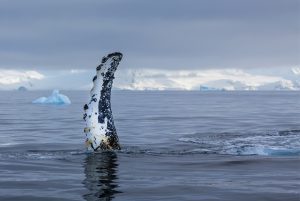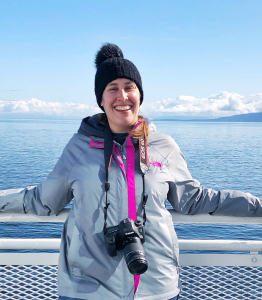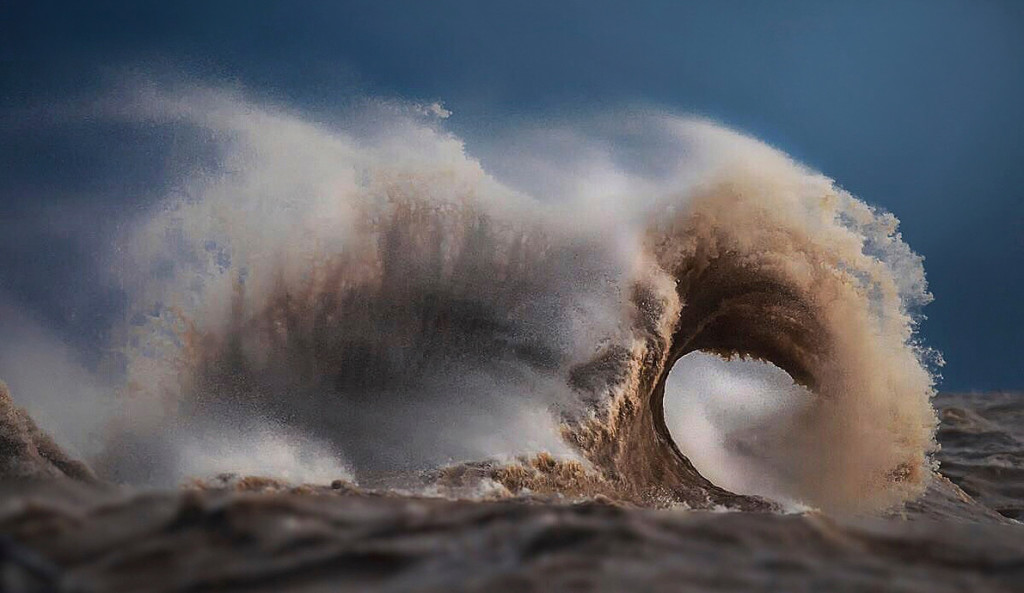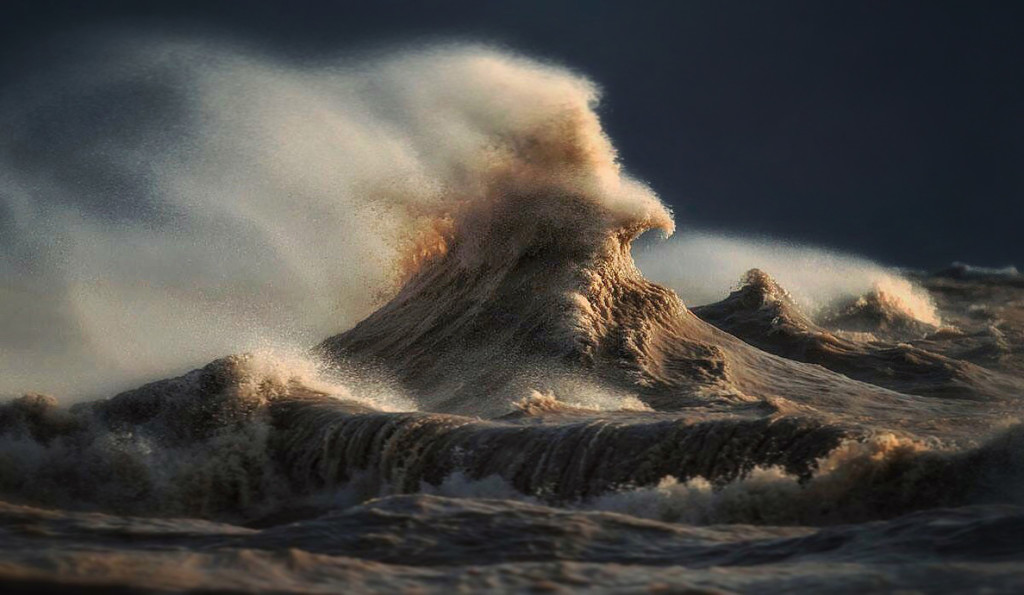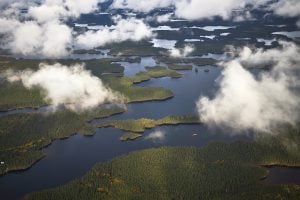Every autumn, masses of warm air from the Gulf of Mexico and cold air from the Arctic collide over the Great Lakes, producing near hurricane-force winds that can sculpt the normally placid waves into jagged peaks several stories high. The so-called “Witches of November” have resulted in numerous shipwrecks on the lakes, including the sinking of the Edmund Fitzgerald in 1975.
Most sane people wouldn’t dare get near the lakes during a November Witch, but that’s precisely when photographer Dave Sandford finds them most interesting.
His photo series “Liquid Mountains,” shot over a period of four weeks in the town of Port Stanley on Lake Erie’s north shore, captures the deadly beauty of the lakes in motion. The images have recently gone viral, with features on CBC, The Huffington Post and Wired.
We asked Sandford for his top five tips for shooting waves as works of art:
1. Water, be it an ocean, lake, river or pond, commands our utmost respect at all times. No matter what, Rule #1 is always be aware of your surroundings. Know when a situation is too much for you to handle. Learn how to read breaks and rips. Before I go in, I always take a little while to study what’s going on out there. When in doubt, don’t go out.
2. You don’t have to have the most expensive camera gear to take amazing photos. Ever hear the saying “The best camera is the one you have on you at the time?” This is true! At times I’ve had just my iPhone and been in situations where I had to get the shot before the moment was gone — and I’ve had photos from those situations published. If you don’t have a professional water housing like my Aquatech housing, or a digital SLR camera, don’t sweat it; there are other, more affordable options. A GoPro camera with a trigger system like Knekt can make great quality images in the water and waves. If you can’t afford that route, there is always a waterproof case for your phone. Use what you have. It’s great to just get out there and try different things.
3. Be creative and don’t be afraid to try new things. Perhaps this means getting in the water rather than staying on the shore. If that’s not an option, lay down on the beach to change your perspective. Something as simple as this can change the entire dynamic of your photo. Waves don’t have to be big to look breathtakingly beautiful. Tiny little lapping waves have so much detail in them. Try zooming in with a medium-length telephoto lens (like a 70-200) on the lip of a small wave as it curls over just before it breaks, or try panning with the waves at a slow shutter speed. Any way you can show motion in your wave image will really bring it to life. This may take a lot of practice and a lot of wasted frames, but you only need the one that matters.
4. Shoot in all kinds of weather. Don’t think because it’s a dark, overcast day that you’re better off staying at home. These kinds of days can make for really striking, moody images. Some of my favourite days are dark and stormy days on the water. Sometimes the sun peeks through, creating a stunning backlight or spotlight effect with the dark surroundings. In these conditions, you can make hauntingly beautiful images.
5. Have fun! Plain and simply put, just go out there and have fun making pictures. You’re at the beach, what’s not to love? I’ve often said a crappy day at the beach is better than nice day in the city, so go out and embrace all the different moods of the lake or ocean.
View more of Dave’s work at his website.
